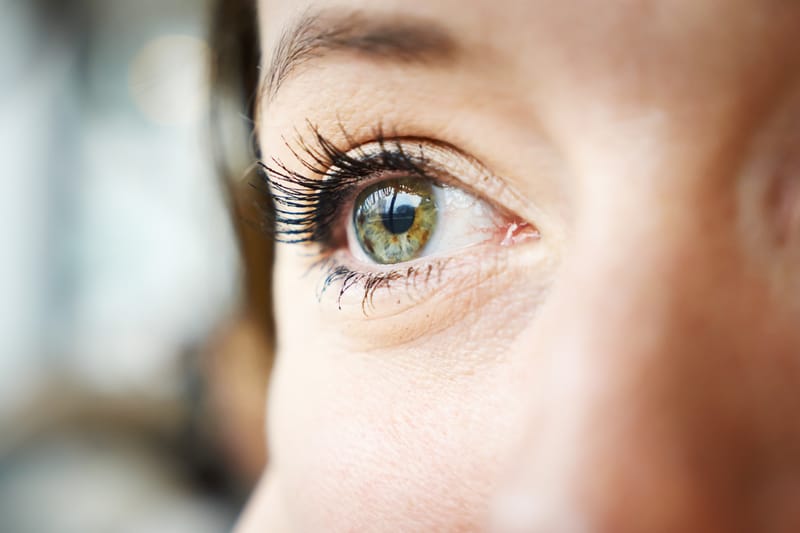5 Tips to Finding a Good Therapist
Expert Therapy & EMDR for Trauma, OCD, Eating Disorders, and Anxiety
You are worthy of receiving help.
It takes a lot of courage to reach out for therapy. With Chiara Manodori's support, you will receive trauma informed therapy that is compassionate and authentic with the goal of achieving better quality of life, reduction of bothersome symptoms, authentic expression of your true self, and achievement of your personal goals.
Whether you've made a New Year's resolution to improve your peace of mind, or if you are continuing on your wellness journey, you've come to the right place.
I earned my masters degree in Clinical Social Work from Smith College School for Social Work in 1995. I specialize in Trauma, PTSD, Anxiety Disorders, Eating Disorders and other mental health issues. I received specific training for eating disorders in 1994, was trained in the Welesley Relational Femenist Theory in 1995, and was trained in the Laurel Parnell EMDR method in 2021. I live in San Francisco and 30 years later I still love what I do.
Thank you for taking the time to learn about me. If you feel ready to take the next step in your journey, I would be honored to support you.
for the treatment of Trauma, PTSD, Eating Disorders and other mental health conditions.
- CBT - Cognitive Behavioral Therapy
- EMDR - Eye Movement Desensitization and Reprocessing
- ERP - Exposure Response Prevention
- IFS- Inner Family Systems - Parts Work
- Psychodynamic and Feminist Relational Models
- Psycho-Educational therapy
- Addictions Models
- Socio-Cultural Sensitive Approaches
- Mind/Body/Spirit theories
- Relational Life Coaching for personal transformation
Services
I offer evidence based mental health services with over 30 years of successful treatments

TRAUMA, PTSD, CPTSD
Specializing in addressing the complex impact of Trauma, ACE - Adverse Childhood Experiences, CPTSD, PTSD and Intergenerational Trauma by providing comprehensive services to promote true healing and lasting resilience.
Learn More
EATING DISORDERS
Specializing in treating Eating Disorders including Anorexia, Bulimia, Binge Eating, Night Eating Disorder, Orthorexia, ARFID and Body Dysmorphia. Using the most evidence based tools to help you achieve long term recovery.
Learn More
OCD, PANIC ATTACKS, PHOBIAS
Offering a compassionate and understanding environment for individuals seeking relief from panic attacks and phobias. Using the most evidence-based approaches including CBT, ERP, and EMDR.
Learn More
ANXIETY AND DEPRESSION
Evidence based therapy and support for individuals struggling with anxiety and depression. I use a combination of Relational Theory, Psychodynamic work, Cognitive Behavioral Treatment, and Inner Family Systems work to help you find lasting relief.
Learn More
ADDICTIONS
Helping clients discover their inner strength and freedom from addictions. Treating substance abuse, alcoholism, drug addiction, as well as behavioral addictions such as eating disorders, workaholism, excercise addiction and more.
Learn More
Eye Movement Desensitization Reprocessing (EMDR)
EMDR is an evidence-based therapy that has been shown to be effective in treating PTSD, Panic Attacks, and other Trauma-Related Disorders. I use Attachment Focused EMDR to help you find lasting relief from symptoms.
Learn More
EXPOSURE THERAPY (ERP)
Exposure Response Prevention Therapy is a proven method for reducing the symptoms of anxiety, panic attacks, phobias, PTSD, OCD and certain eating disorder behaviors by gradually exposing individuals to the feared objects or situations, allowing them to learn healthier ways of coping.
Learn More
COGNITIVE BEHAVIORAL THERAPY (CBT)
Cognitive behavioral therapy, also known as CBT, is a psychotherapeutic approach to help individuals recognize and change negative thought patterns and behaviors. You'll come away with a curated tool box that works for you and you will improve your overall well being.
Learn More
INTERNAL FAMILY SYSTEMS (IFS)/Parts Therapy
Internal Family Systems (IFS) or Parts Therapy helps you access your inner wisdom by reparenting yourself and heal childhood emotional wounds. You will develop healthier relationships with yourself and others and begin to experience trust in yourself.
Learn MoreOnline Video Appointments
CHIARA MANODORI
LCSW, LC
Therapy and Life Coaching online sessions. The best way to get started is to book a free phone consult with Chiara. You can fill in contact info below or send email, text or call. Member EMDRIA, NEDA, and ANAD
Contact
Chiara Manodori, LCSW, LC Email Chiara for a free phone consultation. email: cmanodori@yahoo.com text: 415.640.9862 Based in San Francisco California, Licensed in CA and NY Offering Online video therapy and free 15 minute initial phone consultation. Member EMDRIA, NEDA, ANAD, and IOCDF
Here are some symptoms you may have:
- Becoming easily overwhelmed
- Recurrent, unwanted distressing memories of the trauma
- Body pain or sensations
- Avoiding situations that trigger you
- Sleep problems
- Nightmares
- Feeling numb and detatched
- Feeling hopeless or despair
- Persistent negative thoughts about yourself
- Beoming easily startled
- Irritability
Recovery from PTSD can look like this:
- Reduced distressing memories
- Increased ability to think about the trauma without becoming overwhelmed
- Reduced nightmares
- Ability to sleep more restfully
- Improved self confidence
- Feeling more joyful and relaxed
- Decreased feelings of sadness and irritability
- Ability to experience a fuller range of emotions
- Utilizing better coping skills
- Ability to participate more fully in life and in relationships
- Improved ability to concentrate
- Reduction of body pain and body symptoms
Here are some symptoms you might have:
- Limited diet and making excuses for not eating
- Avoidance or withdrawl from typical social activities
- Obsessioin with food, eating and weight
- Body dysmorphia and body checking
- Eating large amounts of food and feeling out of control
- Compensating for eating by over excercising, purging or fasting
- Inability to rest from excercise
- Fear and avoidance of certain foods because of the sensation, smell, look or feel of the food
- Loss of interest in eating
- Waking up at night to engage in overeating
Recovery from eating disorders can look like this:
- Restoring normal eating habits
- Enjoying a more balanced perspective about food and your body
- Sleeping better
- Increased confidence
- Establish new coping skills
- Ability to participate socially and in food related social situations
Here are some symptoms you might have:
- Social Phobias and other phobias
- Avoidance of activities that trigger panic
- Social phobia
- Feelings of Distress and Panic
- Derealization
- Fear of your body’s physical sensations
Recovery from Panic Disorder and Phobias can look like this:
- Feelings of trust in your body, yourself and the world around you
- Feeling calmer
- Ability to participate more fully in activities
- Ability to tolerate discomfort and feel more confident in your abilities
Here are some symptoms you might have:
- Trouble sleeping
- Loss of interest in activities once enjoyed
- Fatigue
- Loss of appetite
- Feelings of worthlessness and hopelessness
- Difficulty concentrating
- Thoughts of suicide or death
- Chronic Worry
- Feeling Distress and Panicky
Recovery from depression and anxiety can look like this:
- Restful Sleep
- Renewed Interest in your specific interests
- Improved Focus and energy
- Feeling happier and peaceful
- Improved outlook on life
- Ability to trust in oneself and the world around you
I enjoy helping clients discover their inner strength and gain freedom from addictions. My goal is for you to reach the peace, joy, and happiness that you deserve. I take a trauma-informed approach in the treatment of addiction, understanding with compassion that for many people addiction is a maladaptive attempt to cope with and survive the effects of trauma. Together we work on developing new coping skills which can help you handle life's stresses without relying on substances or behaviors. I use a combination of addiction models, motivational therapy, Mind-Body-Spirit approach, CBT, and EMDR to help you succeed in recovery.
Here are some symptoms you might have:
- An inability to stop using the substance or addictive behavior
- Changes in mood, appetite and sleep
- Continuing using your addictive behavior despite negative consequences
- Denial
- Engaging in risky behaviors
- Obsessions and cravings
- Legal, work, and financial problems
- Secrecy and lying
- Family problems
- Taking more substance than you intended
- Withdrawl symptoms
- Health problems as a result of repeated addictive behavior
Recovery from addictions can look like this:
- Cessation from substance abuse and addiction
- Feelings of relief, freedom, and happiness
- Improved connection to others
- Better ability to cope with life's challenges
- Increase trust in yourself and others
- A deeper sense of meaning and purpose in the world
- Improved health
Here are some symptoms you might have:
- Chronic pain or health issues influenced by psychological factors
- Body or Facial Dysmorphia and unexplained pain
- Distored thinking
- Flashbacks, hypervigilence and avoidance of triggers
- Panic Attacks and Anxiety
- Sleep disturbance
- Chronic shame, guilt, and self loathing
- Becoming easily overwhelmed
Recovery with the help of EMDR can look like this:
- Regaining your life and improving your ability to live in the present
- Reduction of avoidance and fears
- Relief from body symptoms and pain
- Experiencing more inner strength, confidence and ability to cope
- Feelings of relaxation, calm and peace
Exposure Response Prevention therapy (ERP) is used to assist people in decreasing the anxiety that fuels their obsessive thoughts and beliefs and compulsive behaviors. This kind of therapy relies on desensitization of the stimuli or trigger. This treatment is not only very effective for OCD and subsets of OCD such as Emetophobia but also for certain aspects of eating disorders, panic attacks, agoraphobia, and PTSD, anxiety and panic attacks. I use Attachment Focused Exposure Response Prevention which is client centered. This method allows you to decide the steps you want to take, as you are ready, in a hierarchical manner from easiest to hardest. This helps you work within your window of tollerance which over time helps you to find confidence in yourself and in your ability to cope with difficult situations.
Here are some symptoms you might have:
- Anxious thoughts and beliefs that feel intollerable
- Phobias and irrational fears
- Compulsive Behaviors typically used to diffuse the anxiety
- Disruption in your relationships
- Avoidance of people places and things that trigger you
- Feeling that you are under-living as a result of your problems
- Panic Attacks, Agoraphobia and other intense anxiety
Recovering using ERP looks like this:
- Reduced frequency and intensity of anxiety
- Reduced compulsive behaviors
- Ability to engage in life socially and pleasurably
- Feeling more confident in yourself and and in your abilities to cope with hard things.
Cognitive Behavioral Therapy (CBT), is a highly effective approach for addressing a wide range of issues like eating disorders, anxiety disorders, people-pleasing, depression, relationship struggles and codependency. CBT is a goal-oriented and evidence-based therapy that focuses on the connection between thoughts, emotions, and behaviors, helping individuals develop practical skills and strategies to overcome difficulties and improve their overall well-being.
Here are some symptoms you might have:
- Anxiety and Depression
- Eating Disorders or other compulsive behavioral problems
- Difficulty coping
- Relationship problems
- Low self-esteem or self-worth
- Phobias or irrational fears
Recovery using CBT can look like this:
- Improved emotional regulation and coping skills
- Reduced symptoms of anxiety, depression, or other mental health conditions
- Greater self-awareness and understanding of thoughts and emotions Improved self-esteem and self-confidence
- Healthier relationship patterns
- Improved communication skills
Here are some symptoms you might have:
- Codependency
- Fear of angry people and authority
- Disrupted relationships
- Difficulty setting boundaries and expressing yourself
- Becoming easily emotionally overwhelmed
- Underachieving and under-being
- Physical pain, body symptoms and body dysmorphia
Recovery using IFS can look like this:
- Connectedness to yourself and others
- Relief from body pain
- Ability to express yourself and set healthy boundaries
- Increased self esteem
- Ability to take calculated risks and live more abundantly
- Improved ability to emotionally cope with difficulties
Resources
Trauma:
Healing from childhood trauma is a deeply personal journey, and various resources can help individuals navigate this process. Here are some reputable online resources that can aid in healing from childhood trauma:
Mental Health Apps:
1. Headspace: Offers guided meditation and mindfulness practices that can help manage stress and anxiety.
2. Calm: Provides resources for meditation, sleep, and relaxation techniques.
Websites and Organizations:
1. National Institute of Mental Health (NIMH): This government website offers information on trauma, its effects, and potential treatments. It also provides educational materials on various mental health topics. https://www.nimh.nih.gov/health/topics/post-traumatic-stress-disorder-ptsd
2. The Anxiety and Depression Association of America (ADAA): Provides articles and resources to cope with anxiety and depression that may stem from childhood trauma.
3. The National Eating Disorder Information Centre (Canada) Provides guides to eating disorders in the Black Indegenous and People of Color communities. Provides articles and a blog. https://nedic.ca/
4. EMDRIA : A comprehensive website with great resources about EMDR. Here is a useful article about how EMDR works for survivors of childhood trauma https://www.emdria.org/about-emdr-therapy/emdr-and-childhood-trauma/
Support Groups:
1. ACA: Adult Children of Alcoholic and Dysfunctional Families: A Free world wide 12 step support group for those healing from the effects of child abuse. Offers both in-person and Zoom/phone meetings. Website: ACA
Educational Resources:
1. Trauma and Recovery: The Aftermath of Violence—from Domestic Abuse to Political Terror by Judith L. Herman: Herman's work provides a comprehensive overview of trauma's effects on individuals and society, with a focus on diagnosis and recovery
2. John Bradshaw's work: Seminars and interviews are often available on YouTube. Searching for "John Bradshaw" on the platform should yield many results where you can watch his discussions on trauma and healing.
3. The Body Keeps the Score: Brain, Mind, and Body in the Healing of Trauma by Bessel van der Kolk
This book explores how trauma affects the body and mind and presents various pathways to recovery, including innovative therapies
4. Waking the Tiger: Healing Trauma by Peter A. Levine
Levine introduces the concept of how trauma affects the body and provides insights into ways to heal it through somatic experiencing
5. Complex PTSD: From Surviving to Thriving by Pete Walker
This book specifically addresses complex post-traumatic stress disorder (C-PTSD) and offers practical strategies for healing
6. The Devil You Know: A Black Power Manifesto by Mark L. Lester
This book discusses the historical context of trauma in relation to systemic racism and the importance of addressing collective trauma.
7. Brené Brown’s work
Renowned for her research on vulnerability and shame. Her website and podcasts are rich in resources on emotional healing.
Online Courses:
1. Coursera & Udemy: Offer courses on emotional healing, trauma-informed care, and mindfulness that may help in personal growth and understanding of trauma.
Podcasts and Social Media:
1. Unlocking Us with Brené Brown: Explores topics of vulnerability, courage, and resilience, which can be essential in trauma recovery.
Journaling and Reflection:
1. Journey or Day One App: Offers a digital journaling platform to help with self-reflection and expression of thoughts and feelings
2. Somatic and Body Healing:
3. Trauma-Informed Yoga - Many organizations offer yoga classes specifically designed for trauma survivors, focusing on body awareness, breath, and gentle movement.
4. Trauma Informed Body Work
5. Sound Healing
6. Healing Trauma: A Pioneering Program for Restoring the Wisdom of Your Body" by Peter A. Levine and Ann Frederick - This book provides practical exercises for healing trauma through body awareness
Eating Disorders
Healing from eating disorders often involves a holistic approach that integrates mental, emotional, and physical aspects. Here are some sources and modalities you might consider:
Websites and Organizations
1. National Eating Disorders Association (NEDA) NEDA offers resources, support, and information about eating disorders, including a helpline, treatment options, and a directory of providers. NEDA
2. The Body Positive - https://thebodypositive.org/
Educational Resources:.
1. The Body is Not an Apology by Sonya Renee Taylor
2. Life Without Ed by Jenni Schaefer
Podcasts and Social Media
1. My ARFID Life - Instagram
Support Groups:
1. Eating Disorders Anonymous EDA
2. Overeaters Anonymous OA
When seeking healing from eating disorders it's essential to work with qualified professionals who understand the complexity of these issues. Always consult with healthcare providers to tailor a recovery plan that suits your individual needs.
Articles
What does Therapy for Emetophobia Look Like